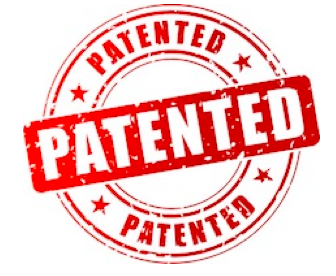The Evolution of Patent Law
By: Mason Roth
Patent Law and Patent Trolls
Modern patent law jurisprudence has grown enormously over the last 20 years. Mirroring the boom in Internet technology dating back to the early 2000s, the number of patents filed with the United States Patent and Trademark Office has skyrocketed in recent years. While Google, Facebook, and other Internet-driven companies have grown tremendously, patent caselaw has not evolved as fast, which resulting in a significant amount of litigation. In the 1990s, opportunistic entities commonly referred to as non-practicing entities (NPEs) or “patent trolls,” anticipated the continuing growth of the Internet technology industry. Capitalizing on this growth, these NPEs acquired a multitude of patents but chose not to actively use them. Instead, the NPEs charge licensing fees to other businesses and individuals that appear to have infringed upon the patents.” While this act may seem like a frivolous threat, it has resulted in a significant amount of litigation, particularly in the Eastern District of Texas, where 28.6% of all patent cases were filed in 2014 and 43.6% of all patent cases were filed in 2015.
Typically, NPEs will threaten suit if a business infringes upon a patent and does not pay licensing fees. When NPEs have sued, they have primarily relied upon the court’s holding in VE Holding Corp. v. Johnson Gas Appliance Co. The court held that when a party sues another for patent infringement, there is “proper venue for corporate defendants in any district where the defendant is subject to the court’s personal jurisdiction” Following this broad grant of power, many plaintiffs now file suit in the Eastern District of Texas, as the district has a reputation for being particularly receptive to claims by NPEs. Under VE Holding, as long as a defendant has transacted business, typically dealing with digital products, in the Eastern District’s jurisdiction (typically a safe assumption, considering that these patents often deal with digital products), the court will most likely have personal jurisdiction. The judges in this district have found for the plaintiffs in roughly 80% of cases.
Getting to the Heart(land) of the Issue
In TC Heartland LLC v. Kraft Foods Grp. Brands LLC, over 25 years after VE Holding, the Supreme Court tightened the limits on where patent lawsuits may be filed. The TC Heartland court held that venue is proper in patent infringement cases when either one of two requirements is met: (1) the defendant resides in the judicial district, or (2) “where the defendant has committed acts of infringement and has a regular and established place of business.” Further, for the first requirement, the Supreme Court clarified—according to the §1400(b) Patent Venue Statute—that residence refers only to the State of incorporation.
Consequent to the court in TC Heartland tightening the venue requirements for patent suits, there is now a limit on the frequency of patent infringement cases that the Eastern District of Texas can hear.
The Lone Star Stands Alone
Since TC Heartland, however, the Eastern District of Texas has tried to hold onto its previous broad authority to hear patent cases. In Raytheon Co. v. Cray, Inc., Cray argued that the Eastern District of Texas was the improper venue to hear the claim, due to a lack of regular and established business in the state. Yet, the Eastern District of Texas found that “Cray’s ties to the district—a single salesperson, working out of his home—was enough to keep the case in the Eastern District.” However, not all courts agree—making the question of venue less clear.
On appeal, the United States Court of Appeals for the Federal Circuit reversed the holding in Raytheon by holding venue to be improper. Using TC Heartland for guidance, the court found that “the facts cannot support a finding that Cray established a place of business in the Eastern District of Texas. Thus, venue cannot exist there under § 1400(b).”
. . .and in the end
As more courts hear patent cases post-TC Heartland, courts may receive more clarity in how to preside over these venue issues. Although there is still a lack of consensus over what constitutes venue in patent cases, TC Heartland has enormous importance for the patent field going forward. As courts continue to hear NPEs attempt to justify actions that constitute a “regular and established place of business,” TC Heartland will continue to grow as one of the most significant pieces of patent caselaw.
Suggested citation: Mason Roth, The Evolution of Patent Law, Cornell J.L. & Pub. Pol’y, The Issue Spotter, (Oct. 29, 2017), http://jlpp.org/blogzine/the-evolution-of-patent-law/.

